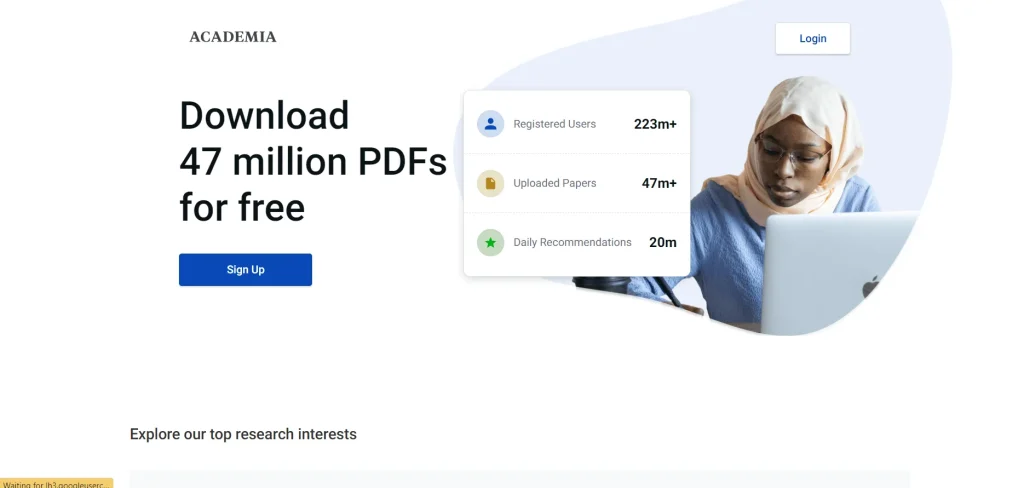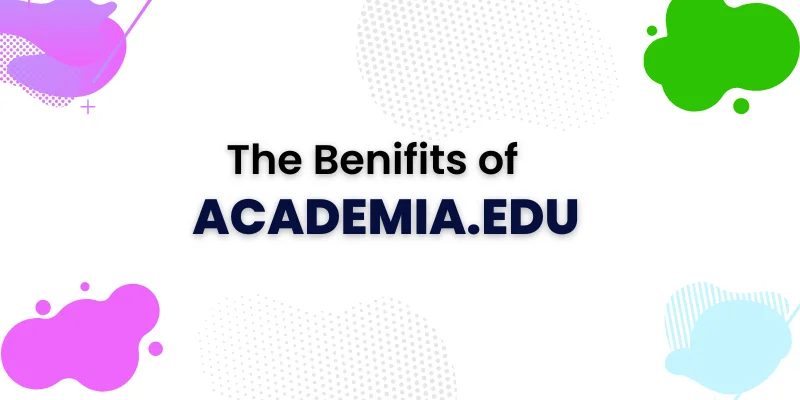Unlocking the Advantages of using Academia.Edu and ResearchGate
In the bustling digital age of 2024 , academic social media platforms like Academia.edu and ResearchGate have revolutionized scholarly communication, offering unprecedented benefits for using these networks. Whether you’re looking to expand your readership, find collaboration opportunities, or keep abreast of the latest research, understanding how to effectively use these platforms can accelerate your academic career. This article explores the ins and outs of these two leading platforms, revealing how they can complement traditional academic publishing and networking methods.
What Are Academia.edu and ResearchGate?
Defining the Academic Social Network Giants
Academia.edu and ResearchGate are two academic social networks that have taken the world of scholarly work online. With millions of users, these platforms facilitate the dissemination and discussion of academic research. They are repositories where researchers can upload their work and receive updates on the latest developments in their field.
The Benefits of Using Academic Social Media
Broadening Your Research Impact and Network
In 2024, the benefits of using platforms like Academia.edu and ResearchGate are manifold. They offer open access to a vast array of scholarly work, increasing the visibility of your research and making it easier for others to find and cite your publications. Furthermore, their built-in metrics and analytics provide valuable insights into the readership and impact of your work.
How to Create an Impactful Academic Profile
Crafting Your Online Academic Identity
Your academic profile on platforms such as Academia.edu or ResearchGate is akin to your professional CV in the digital realm. It’s a platform for academic branding, where you can showcase your publication history, research interest areas, and professional achievements. A well-crafted profile makes it easier for others to find your work and opens up new avenues for scholarly collaboration.
Networking and Collaboration Through Academic Social Media
Connecting with Peers for Collaborative Opportunities
Academic social networks are not just about uploading papers; they’re also networking sites where you can connect with other researchers. By creating profiles and following others, you can build a research network that spans the globe, allowing you to collaborate on projects, share ideas, and engage in peer review.
Understanding Academia.edu and ResearchGate and their Repository Functions
A Digital Library at Your Fingertips
Both Academia.edu and ResearchGate function as institutional repositories, providing free access to a wealth of academic research. They allow for the uploading of full-text publications, making them downloadable for the wider academic community and thus contributing to the open science movement.
The Role of Analytics and Metrics in Academic Social Media
Measuring the Reach and Impact of Your Work
Analytics and metrics provided by these online platforms offer a glimpse into how your work is being received within the academic community. They help you understand which publications resonate with your audience, thereby guiding future research directions and strategies for wider dissemination.
The Privacy Implications of Using Academia.edu and ResearchGate
Navigating Data Protection and Privacy Concerns
Despite the many benefits, there are privacy implications to consider when using these platforms. As commercial services, the way each company uses data should be scrutinized, especially if you’re concerned about how your information might be shared with advertisers or used for purposes beyond scholarly communication.
Academia.edu vs. ResearchGate: A Comparative Analysis
Choosing the Right Platform for Your Academic Needs
While closely related, Academia.edu and ResearchGate offer different features and experiences. This section will delve into the nuances of each platform, helping you decide which one aligns best with your academic goals and the type of engagement you seek.
Receiving Updates and Staying Current in Your Field
Keeping Up with the Latest Research Developments
Both platforms allow you to receive updates and alerts on new papers and research projects within your interest areas. This feature ensures that you remain at the forefront of your field, providing timely access to the latest scholarly work and discussion.
The Future of Academic Social Media in the Scholarly World
Anticipating Changes and Innovations
As we look toward the future, we can expect academia.edu and ResearchGate to continue evolving. This section will speculate on potential changes, from the development of new features to shifts in how academic social media sites are used by the scholarly community.
Leveraging Mendeley for Academic Networking in the Social Sciences
Building Your Research Network and Repository
Mendeley serves as a dual tool for social sciences scholars; it’s not only a platform to collect and organize research but also a network to find and follow peers. By integrating your ORCID, you can ensure that your scholarly work is connected to a unique identifier, making it easier for others to find and cite your contributions.
The Advantages of Uploading Your Publications to Academia.edu
Increasing Visibility and Accessibility of Your Work
Academia.edu offers a space where researchers can upload their work and create a profile page, thus enhancing their digital presence. This online platform acts as a conduit between your research and the global academic community, ensuring your publications are discoverable and accessible to interested peers.
ResearchGate’s Role in Promoting Scholarly Work
Facilitating Peer Review and Collaboration
ResearchGate may be seen as a for-profit entity, but its core mission aligns with open science principles. It allows for researchers to share preprints, engage in peer review, and receive updates on new papers and research projects within their interest areas, thereby fostering a dynamic research network.
Navigating the Downside of Commercial Academic Services
Understanding the Trade-Offs for Free Access
While platforms like Academia.edu and ResearchGate provide free access to a wealth of information, they’re also commercial services with subscription options. Users should be aware of the privacy implications and how the company uses data, as well as the potential influence of advertisers on search results.
The Synergy of ORCID and Online Platforms for Academic Discoverability
Streamlining Research Identity Across Platforms
ORCID provides a persistent digital identifier that allows others to find your publications across various online platforms, including Google Scholar. This integration is a product that these services seek to offer, enabling a seamless connection between your research outputs and digital identity.
How Preprints on ResearchGate and Academia.edu are Changing the Game
Preprint Sharing and Its Impact on Research Dissemination
Both Academia.edu and ResearchGate are closely related to the movement towards faster dissemination of research findings in the digital age. By allowing researchers to upload and share preprints, these platforms are pivotal in advancing the pace at which research can influence and benefit humanity.
The Digital Age: Receiving Updates and Staying Ahead
Keeping Up with the Latest in Scholarly Communication
In the digital age, staying updated on the latest developments in your field is vital. Using these platforms allows you to receive updates on closely related research, ensuring that you have access to the latest scholarly work without proper delays typically associated with traditional publishing.

Open Science and Its Realization Through Academic Social Media
The Role of Free Access in the Evolution of Research
The concept of open science is at the heart of academic social media platforms. Despite being for-profit companies, platforms like Academia.edu and ResearchGate provide downloadable content and free access to a vast repository of academic research, contributing significantly to the open science ecosystem.
Privacy Implications of Using For-Profit Academic Platforms
Balancing Free Resources with Data Protection
One of the downsides of using for-profit platforms like ResearchGate and Academia.edu is the privacy implications that come with free resources. Researchers must navigate the fine line between enjoying the benefits of these platforms and maintaining their privacy, especially when personal data might be used by the company in ways that are not always transparent.
Paid Subscriptions vs. Free Access: What Academia.edu and ResearchGate Offer
Deciding on the Best Access Model for Your Needs
Both Academia.edu and ResearchGate offer paid subscription options that come with additional features. However, many of their core services, including the ability to upload and access publications, remain free. This section would explore whether the premium features are worth the investment or if the free access meets the needs of most academics.
Last Words
In the end, we can say that academia.edu and ResearchGate are one of the most helpful platforms for researchers to boost their network, access research, and get insights about their research. By using these features of academia.edu and ResearchGate users can grow their professional careers. Academia.edu continues to shape the research landscape, empowering researchers to connect, collaborate, and thrive in the digital age.

